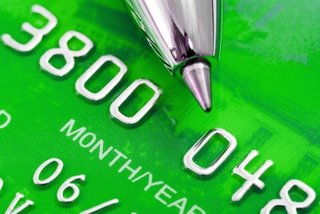 Minimum payments on credit card balances were designed as a tool to help consumers when unexpected debts arise or a breadwinner is off work for some reason. Nevertheless, about 5% of all consumers routinely pay just the minimum each month.
Minimum payments on credit card balances were designed as a tool to help consumers when unexpected debts arise or a breadwinner is off work for some reason. Nevertheless, about 5% of all consumers routinely pay just the minimum each month.
Prior to regulations which went into effect in 2003, credit card issuers could set a minimum that was far less than the interest accrued each month, causing these “minimum payment” borrowers to go further in debt with each passing month – even without additional spending.
In 2003 Federal regulators stepped in with standards that ensure that the current balance can be amortized over time, but even these minimums will keep consumers in debt for far too long, and will result in huge interest payments.
Under current standards, the minimum must reflect a payment of at least 1% on the balance, plus current interest. If that interest happens to be 20%, the debt will double in 5 years. Meanwhile, at only 1% repayment per month, it will take 8 1/3 years to pay off the principal. The borrower will have paid 160% of the original amount in interest.
A second drawback of paying just the minimum is that the practice puts a label on the borrower. They’re seen as a greater risk, and so – of course- the credit card companies raise their interest rates!
Now, with the country in what has finally been labeled as a “recession,” many credit card users are no longer able to meet even monthly minimums. In response, some credit card issuers have instituted programs to help consumers get back on track. They’re waiving over limit fees and lowering annual percentage rates.
Some card issuers, such as Chase Bank, are offering Settlement Plans to let consumers settle their outstanding balances for 50% or less than the balance due. Of course, if a consumer was unable to meet a monthly minimum, the likelihood that they can suddenly pay off even half of the balance due is probably slim.
The best advice from financial experts is to pay as much as you can each month, and retire that credit card debt as soon as possible.
Just remember not to close the account once it’s paid off – having that unused and available credit will serve to raise your FICO scores. Even if you aren’t in the market for a new loan today, circumstances change.
Work to keep your credit rating high, because it affects more than just your ability to obtain a loan. Everyone from potential landlords or employers to cell phone providers judges you by that FICO score.
Our advice: get a copy of your credit report today, examine it to check for possible errors or signs of identity theft, then consider all the ways that you can raise that score all the way to the top.



